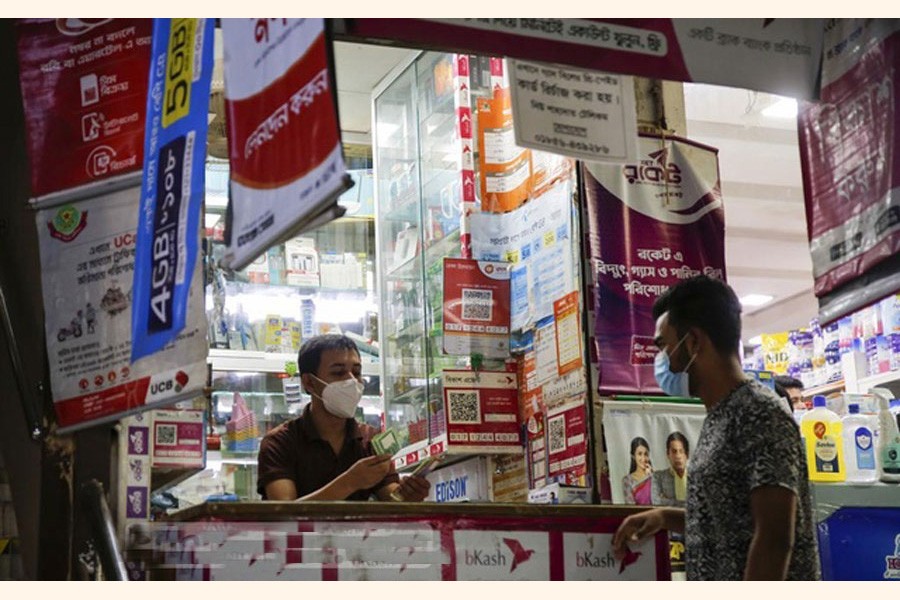A digital revolution is sweeping the globe propelling the speed with which we do financial transactions. Brick and mortar banks could soon become historical relics. But with this technological revolution comes the challenge of “cybersecurity” at the national level. On the ground, however, we have retail consumers making billions of transactions each day trusting the digital regime. That trust must be based on watertight digital system of consumer protection. That is a right of the consumer in the digital age.
As a developing country, with all the pitfalls and shortcomings that characterize the development process, Bangladesh is far along in embracing digital technology with rapidly growing access for the vast swathe of hitherto unbanked population. And the digital revolution is unstoppable, like globalisation in world trade.
The road to financial access is opening up fast, thanks to the combination of two interdependent phenomena of the digital world — FinTech (Finance and Technology) and DeFi (Decentralised Finance). Digital Financial Services (DFS) in Bangladesh, an offshoot of FinTech and DeFi, is a technical innovation and a social revolution all rolled into one.
But DFS is built on another platform, mobile telephony, which constitutes another technical innovation and social revolution for the Bangladesh economy and society. Importantly, DFS/MFS is a cheap financial service affordable to the common man or woman in a developing economy still afflicted with poverty for millions.
The two parallel innovations are the building blocks fuelling another revolution in the economic landscape — e-commerce, a fast-growing business activity.
Like many other growth accelerations, Bangladesh is well on its journey towards a fully paperless digital society in the coming years, a journey that will catapult Bangladesh society securely into the digital age well before this decade is out.
Like everywhere, the Covid-19 pandemic has given a boost to the digital economy and e-commerce. That implies a rapid rise in human productivity and economic growth. It does give rise to a misplaced concern about displacement of workers. But the fact is this transformation is not likely to result in unemployment, as many would surmise. On the contrary, research evidence around the globe and across history suggests that such innovations create more jobs than get eliminated in the transformation process. So is the case in Bangladesh.
All this is good news. But here comes the bad news – scams, theft, consumer security and privacy breaches. Hacking and theft are also digital with a fast-growing need for greater cybersecurity. These have also become endemic around the world, with considerable investment being warranted to ensure that e-commerce is a boon to society as living standards rise rather than becoming a digital quagmire for national governments. Like unproductive defence spending, massive amounts are being invested by corporations and governments in cybersecurity to ensure that e-commerce and DFS are secure from the onslaught of hackers and scamsters. Bangladeshi consumers deserve it.
Just as there are increasing challenges in the digital world, there are also solutions. Digital fraud prevention is a challenge that requires a whole-of-community approach accompanied or preceded by continuous digital education of users.
As access to Digital Financial Services reaches the remote corners of Bangladesh and consumers of all shades, poor or non-poor, urban or rural, embrace e-commerce, digital governance must be made watertight with strong guardrails to ensure all consumers are fully protected. In particular, the rural population in remote areas, hitherto left out in the digital divide, must be given robust protection under a system of digital governance that imparts a good sense of security for their monetary transactions. Improved trust and confidence in the digital regime implies faster spread of the cashless economy and society that would be the game changer in Bangladesh’s post-LDC journey towards Upper-Middle Income Country (UMIC).
Rapid growth and poverty reduction in Bangladesh would be the handmaidens of such a societal transformation.
Dr Zaidi Sattar is Chairman, Policy Research Institute of Bangladesh.







